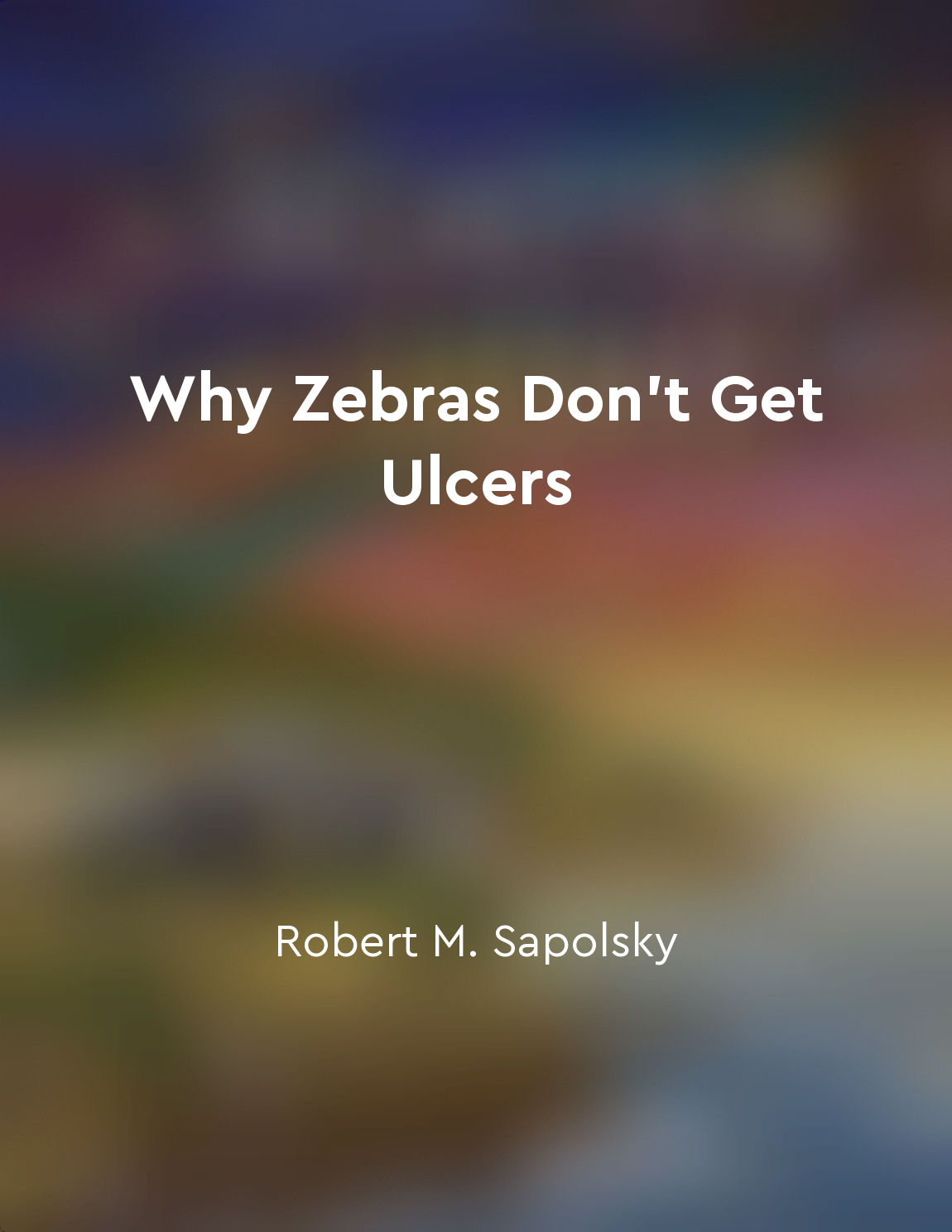Audio available in app
Zebras release stress hormones to escape predators from "summary" of Why Zebras Don't Get Ulcers by Robert M. Sapolsky
In response to a predator, a zebra's body releases stress hormones. These stress hormones prepare the zebra for a sudden burst of energy, enabling it to escape from the predator. The release of stress hormones triggers a chain of physiological responses in the zebra's body. Blood is diverted from non-essential organs, such as the digestive system, and is redirected to the muscles, providing the zebra with the energy needed to run for its life. At the same time, the zebra's heart rate and blood pressure increase, further enhancing its ability to flee from danger. The stress response in zebras is crucial for their survival in the wild. By releasing stress hormones in the face of danger, zebras are able to react quickly and effectively to threats from predators. This physiological response is an evolutionary adaptat...Similar Posts
Regular relaxation practice can enhance mental clarity
Regular relaxation practice involves a series of techniques that can help calm the mind and body. When we engage in these pract...
Embrace uncertainty and chaos
One should not be afraid of uncertainty and chaos, but rather should welcome them with open arms. These elements are essential ...
Seasonal foods provide optimal nourishment
The concept of seasonal foods providing optimal nourishment is a fundamental principle in traditional Chinese medicine. By cons...
Emotional intelligence promotes empathy and understanding in relationships
When we possess emotional intelligence, we are better able to connect with others on a deeper level. This connection is fostere...

Super immunity is within reach with the right lifestyle choices
Achieving super immunity is not an unattainable goal reserved for a select few. It is not a matter of luck or genetics, but rat...

Maintaining a positive attitude is essential for super aging
Having a positive attitude is crucial when it comes to aging gracefully. It may sound simple, but the power of positivity shoul...
Prevention is key in maintaining health
The foundation of good health lies in prevention. It is far easier to maintain health than it is to restore it once it has been...
Emotional wellbeing affects hormonal health
Our emotions have a direct impact on our hormonal health. When we are stressed, anxious, or overwhelmed, our bodies release cor...
Finding purpose in our work can lead to greater fulfillment
When we find purpose in our work, we unlock a powerful source of motivation and fulfillment. This sense of purpose goes beyond ...
Trauma can impact relationships and social interactions
Trauma has a way of seeping into every aspect of a person's life, including their relationships and social interactions. When s...

